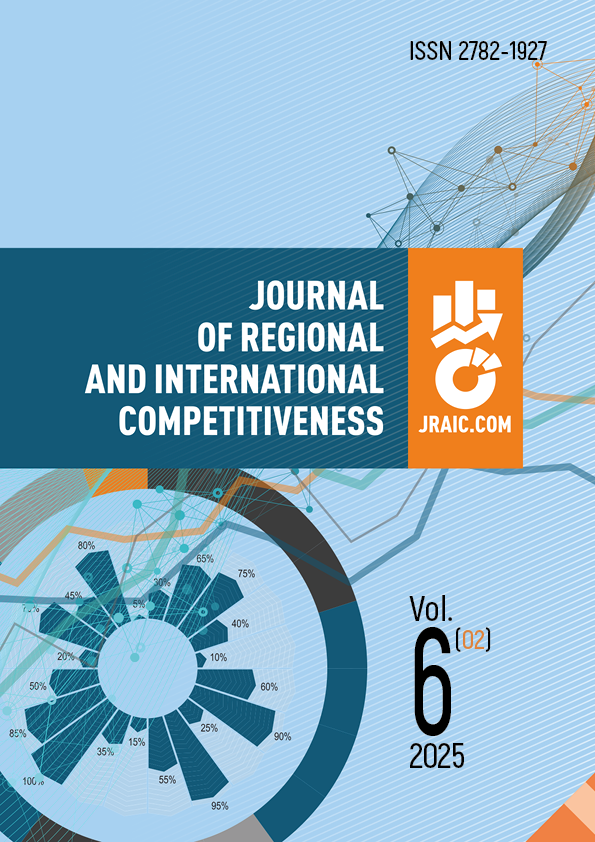Санкт-Петербург, г. Санкт-Петербург и Ленинградская область, Россия
В статье рассматривается роль сигналов в области экологии, социальной ответственности и корпоративного управления (ESG) в процессе привлечения и удержания сотрудников в ведущих российских компаниях. В условиях растущей значимости соответствия ESG-стандартам исследование опирается на теорию сигналов для анализа того, каким образом организации транслируют свою приверженность принципам устойчивого развития. Согласно существующим теоретическим подходам, эффективная ESG-коммуникация повышает репутацию компании и её привлекательность для соискателей, влияя на их намерение подать заявку на трудоустройство. С целью анализа текущей практики ESG-коммуникаций в компаниях-лидерах различных отраслей России используется тематический и контент-анализ. Исследование охватывает содержание ESG-отчетности и карьерных разделов корпоративных сайтов, а также оценивает присутствие ESG-сигналов в прямых коммуникациях с потенциальными сотрудниками. Результаты позволяют выявить наиболее часто транслируемые элементы ESG-повестки и разработать практические рекомендации для компаний, стремящихся повысить свою конкурентоспособность на рынке труда при одновременном продвижении принципов устойчивого бизнеса.
теория сигналов; ESG-сигналы; ESG-отчетность; привлечение сотрудников; удержание сотрудников; тематический анализ; контент-анализ
1. Abraham, M., Gniza, J., & Ostermann, K. (2021). How can employers signal trustworthiness to job seekers? Determinants of employer reputation. Rationality in Social Science: Foundations, Norms, and Prosociality, (9), 269-292. DOI: https://doi.org/10.1007/978-3-658-33536-6_13
2. Alves, I. R., Mesquita, E., Caneppele, N. R., & Martins, F. S. (2025). Beyond practicing: understanding the influence of ESG perceptions on employee retention. Management Research: Journal of the Iberoamerican Academy of Management, 23(3), 260-282. DOI: https://doi.org/10.1108/MRJIAM-06-2024-1562
3. Carlini, J., Grace, D., France, C., & Lo Iacono, J. (2019). The corporate social responsibility (CSR) employer brand process: integrative review and comprehensive model. Journal of Marketing Management, 35(1-2), 182-205. DOI: https://doi.org/10.1080/0267257X.2019.1569549
4. Celani, A., & Singh, P. (2011). Signaling theory and applicant attraction outcomes. Personnel review, 40(2), 222-238. DOI: https://doi.org/10.1108/00483481111106093
5. Chen, Y. L., Hsieh, H. L., & Ko, Y. E. In the eyes of job seekers: the impacts of ESGonorganizational reputation and attractiveness. International Journal of Arts, Humanities and Social Sciences, 05(03). DOI: https://doi.org/10.56734/ijahss.v5n3a2
6. Dineen, B. R., Van Hoye, G., Lievens, F., & Rosokha, L. M. (2019). Third party employment branding: What are its signaling dimensions, mechanisms, and sources? In Research in personnel and human resources management, 37, 173-226. Emerald Publishing Limited. DOI: https://doi.org/10.1108/S0742-730120190000037006.
7. Gannon, G., & Hieker, C. (2022). Employee Engagement and a Company’s Sustainability Values: A Case Study of a FinTech SME. Management Studies, 10(3), 201-210. Retrieved from https://davidpublisher.com/Public/uploads/Contribute/62e77451d2fbb.pdf DOI: https://doi.org/10.17265/2328-2185/2022.03.006
8. Garsaa, A., & Paulet, E. (2022). ESG disclosure and employee turnover. New evidence from listed european companies. Relations industrielles/Industrial Relations, 77(4). DOI: https://doi.org/10.7202/1097695ar
9. Guest, D. E., Sanders, K., Rodrigues, R., & Oliveira, T. (2021). Signalling theory as a framework for analysing human resource management processes and integrating human resource attribution theories: A conceptual analysis and empirical exploration. Human resource management journal, 31(3), 796-818. DOI: https://doi.org/10.1111/1748-8583.12326
10. Kim, J., Park, Y., Kim, B., & Lee, C. K. (2024). Impact of perceptions of ESG on organization-based self-esteem, commitment, and intention to stay. Journal of Travel & Tourism Marketing, 41(1), 106-127. DOI: https://doi.org/10.1080/10548408.2023.2293026
11. Kim, M. J., Lee, S., & Chang, H. J. J. (2025). What Does Gen Z Prioritize in ESG Companies? Exploring Gen Z’s Moral Identity and Firm Attractiveness. In International Textile and Apparel Association Annual Conference Proceedings, 81(1). Iowa State University Digital Press. DOI: https://doi.org/10.31274/itaa.18801
12. Kim, Y., & Cho, W. (2024). The effect of airline’s ESG management on corporate reputation, corporate image, and relationship continuance intention. Global Business & Finance Review (GBFR), 29(5), 146-159. DOI: https://doi.org/10.17549/gbfr.2024.29.5.146
13. Lee, C. C., Luppi, J. L., Simmons, T., Tran, B., & Zhang, R. (2023). Examining the impacts of ESG on employee retention: a study of generational differences. Journal of Business and Management, 29(1), 1-22. DOI: https://doi.org/10.1504/JBM.2023.141301
14. Lee, M. T., Raschke, R. L., & Krishen, A. S. (2022). Signaling green! firm ESG signals in an interconnected environment that promote brand valuation. Journal of Business Research, 138, 1-11. DOI: https://doi.org/10.1016/j.jbusres.2021.08.061
15. Liu, L., & Nemoto, N. (2021). Environmental, social and governance (ESG) evaluation and organizational attractiveness to prospective employees: Evidence from Japan. Journal of Accounting and Finance, 21(4), 14-29.
16. Matsko V. (2022). ESG-positioning as a sustainable approach to increasing brand awareness. Herald of the Siberian Institute of Business and Information Technologies, 11(3), 94-99 (in Russian).
17. Palacin-Bossa, G. D., Alvear-Montoya, L. G., & Macías-Jiménez, M. A. (2024). Exploring the relationship between ESG, financial performance, and corporate reputation using ANOVA: The case of Colombian companies. Procedia Computer Science, 241, 552-557. DOI: https://doi.org/10.1016/j.procs.2024.08.079
18. Robertson, J. L., Montgomery, A. W., & Ozbilir, T. (2023). Employees’ response to corporate greenwashing. Business Strategy and the Environment, 32(7), 4015-4027. DOI: https://doi.org/10.1002/bse.3351
19. Spence, M. (1973). Job market signaling. The Quarterly Journal of Economics, 87(3), 355-37. DOI: https://doi.org/10.2307/1882010
20. Teor, T. R., Ilyina, I. A., & Kulibanova, V. V. (2022, April). The Influence of ESG-concept on the Reputation of High-technology Enterprises. In 2022 Communication Strategies in Digital Society Seminar (ComSDS)(p. 184-189). S. Petersburg (in Russian). DOI: https://doi.org/10.1109/ComSDS55328.2022.9769074
21. Wilden, R., Gudergan, S., & Lings, I. (2010). Employer branding: strategic implications for staff recruitment. Journal of marketing management, 26(1-2), 56-73. DOI: https://doi.org/10.1080/02672570903577091
22. Zhang, T., Zhang, J., & Tu, S. (2024). An Empirical Study on Corporate ESG Behavior and Employee Satisfaction: A Moderating Mediation Model. Behavioral Sciences, 14(4), 274. DOI: https://doi.org/10.3390/bs14040274



















